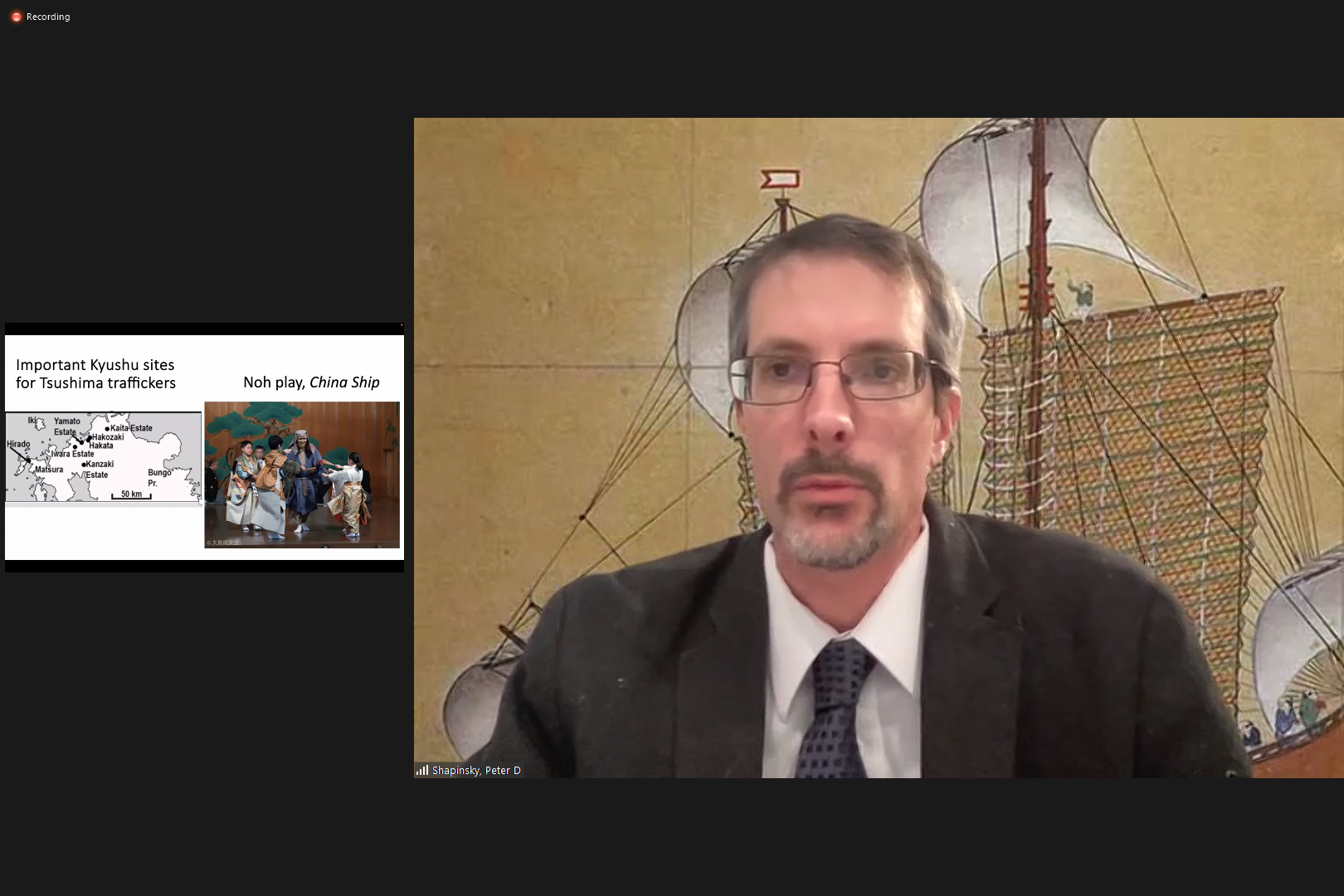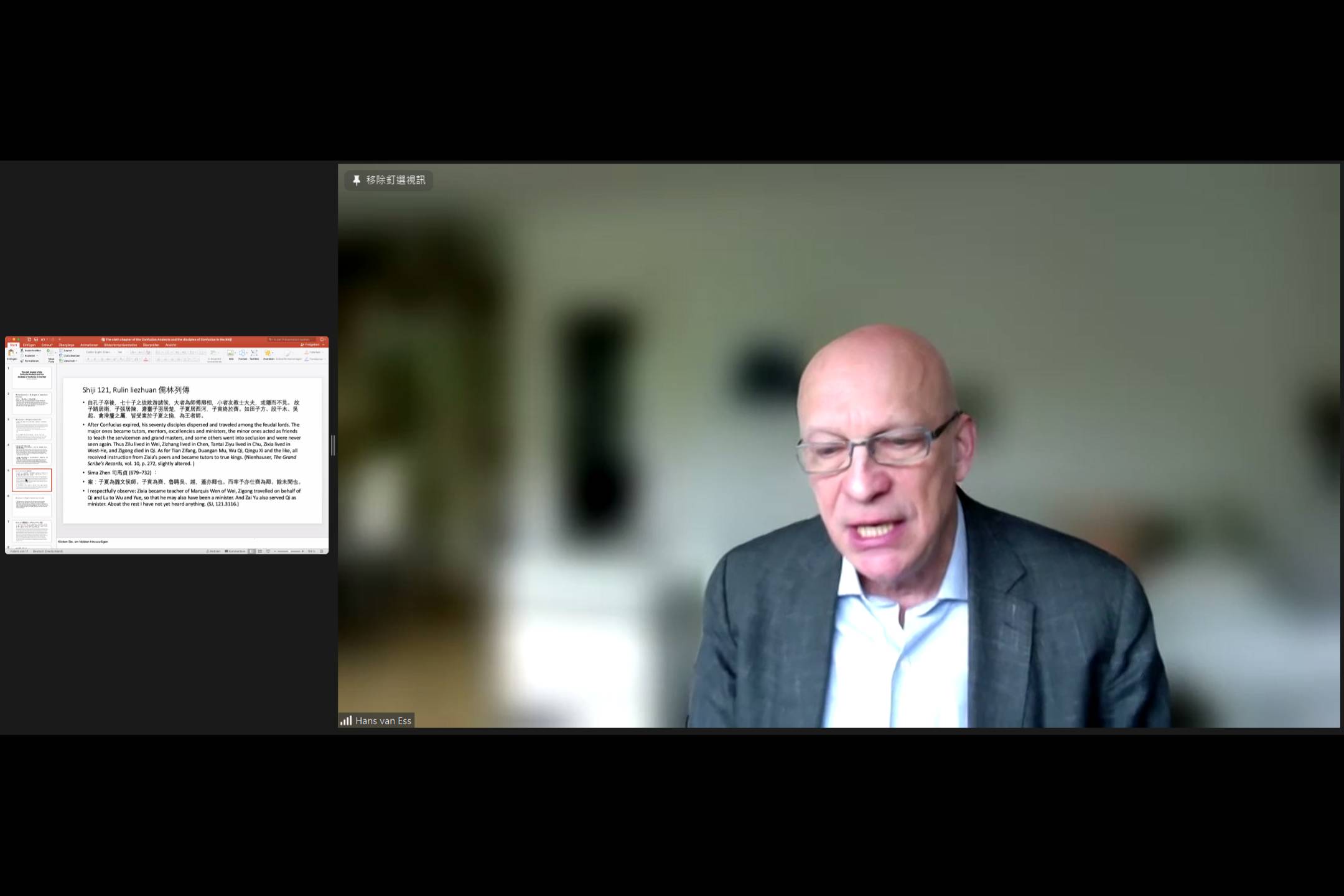Campus Digest
Professor Chang Chuen Memorial Lectures examine Japan’s human trafficking during the Middle Ages and the achievements of Confucius’ disciples
Thursday, 30 May 2024
The Department of History held the Professor Chang Chuen Memorial Public Lecture Series on 12 March and 19 April, delivered by Professor Peter Shapinsky of the University of Illinois, Springfield, the US; and Professor Hans van Ess of the Ludwig-Maximilians-Universität München, Germany, respectively. The lectures attracted over 200 members of the public, students, and faculty members.
Professor Peter Shapinsky shared the system of human trafficking in Tsushima Island during the Middle Ages in Japan. By exploiting its geographically strategic location that was close to regional trade routes and capitalising on local conflicts and wars, large numbers of slaves were continuously captured, turning Tsushima Island into a significant hub for human trafficking during the medieval period. The ruling Tsushima clan obtained political power and wealth by implementing the system of slavery on the island. Over time, slavery became deeply entrenched in Tsushima’s local social fabric.
Professor Hans van Ess conducted an analysis by examining the descriptions of Confucius' disciples in Chapter 6 of the Lunyu and Chapter 67 of the Shiji. Through an examination of different terminology and sentences, he explored the disciples' actions and achievements, as well as the evaluations given by Confucius and their contemporaries. He highlighted the challenges of interpreting historical documents and emphasised the complexity of evaluations. All in all, the study provided a deeper understanding of the subtle relationships among Confucius and his disciples.
Professor Chang Chuen is the late Founding Head of the Department of History. The Lecture Series was established with generous donations from Professor Chang’s family, former students, and colleagues, in memory of his significant contributions to the Department and to the field of history.

